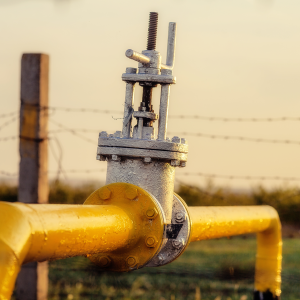
Stephen Quirke is a journalist based in Portland, Ore. His work has appeared in Mother Jones and Earth Island Journal.
Posts By This Author
Why Four Christian Activists Risked Arrest to Shut Down an Oil Pipeline
THE WORLD HAS known since 2011 that at least 80 percent of all fossil fuels must stay in the ground to keep global temperatures below 2 degrees Celsius. This means that 90 percent of U.S. and Australian coal, and all Canadian tar sands, must stay in the ground. Yet in an August press conference, President Trump reacted to a question on global climate action by defending, at all costs, wealth creation from fossil fuels.
“I’ve made that [fossil fuel] wealth come alive,” Trump said. “We have more of it than anybody else. ... I’m not going to lose it on dreams, on windmills, which frankly aren’t working too well. ... We can’t let that wealth be taken away.”
That wealth, according to author and news anchor Chris Hayes, is valued at $10 trillion to $20 trillion. Hayes notes that $10 trillion in today’s economy is roughly equivalent to the wealth lost by U.S. slave holders as a result of abolition. Comparing the political economies of the slave trade and fossil fuels, Hayes suggests the movement against fossil fuel extraction ought to be called “the new abolitionism.”
Yet, with no global climate plan, the warnings from scientists have become more dire. Many now grapple with depression, while others undergo what’s been called “climate grief.” In 2015, global levels of carbon dioxide surpassed 400 parts per million, a trajectory that takes the world into global heating, ocean acidification, and species collapse. If governments and corporations won’t keep fossil fuel reserves in the ground, it’s clear that others will have to step in. Fortunately, some have.
Shut It Down
ON OCT. 11, 2016, five people orchestrated the largest coordinated shutdown of oil pipelines in U.S. history. With nothing more than bolt cutters, the “valve turners”—Michael Foster, Leonard Higgins, Emily Johnston, Annette Klapstein, and Ken Ward—used emergency shut-off valves to close five pipelines in North Dakota, Minnesota, Montana, and Washington carrying Canadian tar sands crude into the United States.
In an action that “shook the North American energy industry,” according to Reuters, the valve turners disrupted 2.8 million barrels of tar sands heavy crude for almost a day—equal to 15 percent of daily U.S. consumption. Before shutting the lines off, the valve turners notified the engineers responsible for monitoring them. The five waited until local sheriffs took them into custody. The valve turners and their support team were charged with 27 felonies and 15 misdemeanors.
“There’s [a climate] emergency, and we have been late to the scene,” Foster, one of the five, told Sojourners. “As much as we have to stop all these new [fossil fuel] projects, we actually have to shut down some of our existing consumption, our existing production, our existing transportation. If we don’t do that, then we could spend the next 30 years fighting every new project, and win, but we would still all be eliminated.”
For activists like Foster, keeping 80 percent of fossil fuels in the ground makes direct action a necessity. Others have taken similar steps: In 2015, Vanessa Gray shut off a pipeline carrying tar sands oil through her First Nation’s territory in Ontario. In 2017, Ruby Montoya and Jessica Reznicek in Iowa pierced Dakota Access pipeline valves with welding tools.
